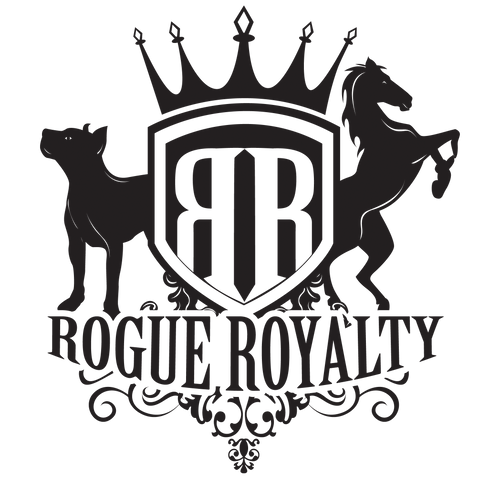Proper nutrition is essential for the health and well-being of your dog. Just like humans, dogs require a balanced diet to thrive, maintain energy levels, and ensure their bodily functions operate smoothly. In this comprehensive guide, we will delve into the basics of dog nutrition, how to read dog food labels, different types of dog food, special dietary needs, healthy treats, supplements, and common myths. This information will help you make informed choices to ensure your dog gets the best nutrition possible. As an Australian company, Rogue Royalty is dedicated to providing high-quality, natural products to support your dog's health.
Basics of Dog Nutrition
Understanding the basic nutritional needs of dogs is the first step to ensuring they live a healthy life. Dogs need a balance of essential nutrients, including proteins, fats, carbohydrates, vitamins, and minerals.
- Proteins: Essential for muscle development and repair, proteins are a crucial part of a dog's diet. They provide amino acids that are vital for various bodily functions.
- Fats: These provide energy and support cell function, the absorption of vitamins, and the production of hormones. Omega-3 and Omega-6 fatty acids are particularly beneficial.
- Carbohydrates: While not essential, carbohydrates provide a quick source of energy and support digestive health.
- Vitamins and Minerals: Necessary for metabolic processes, vitamins (like A, D, E, and K) and minerals (like calcium, phosphorus, and potassium) are crucial for a dog's health.
- Water: The most important nutrient, water is vital for hydration, digestion, and overall health.
For a range of healthy dog food options, check out the Healthy Dog Food Collection.
Understanding Dog Food Labels
Reading and understanding dog food labels can be daunting, but it’s essential for ensuring your dog gets the right nutrients.
- Ingredients List: Ingredients are listed in order of weight. Look for high-quality protein sources like meat or fish at the top of the list.
- Guaranteed Analysis: This section provides the minimum percentages of crude protein and fat, and the maximum percentages of crude fiber and moisture.
- AAFCO Statement: The Association of American Feed Control Officials (AAFCO) statement indicates the food meets nutritional standards.
- Avoid: Fillers like corn and wheat, artificial preservatives, colors, and flavors.
For natural supplements to enhance your dog's diet, visit the Natural Supplements Collection.
Types of Dog Food
There are several types of dog food available, each with its own benefits and drawbacks.
- Dry Food (Kibble): Convenient and affordable, kibble helps keep teeth clean but may lack moisture.
- Wet Food: Higher in moisture, which is good for hydration, but typically more expensive and has a shorter shelf life.
- Raw Food: Mimics a natural diet and can be very nutritious but requires careful handling and preparation.
- Homemade Food: Allows for complete control over ingredients but requires nutritional balancing and significant effort.
Explore the Raw Food Range for Dogs for high-quality raw feeding options.
Special Dietary Needs for Dogs
Dogs' dietary needs can vary based on age, breed, and health conditions.
- Puppies: Require more protein and calories to support growth.
- Adults: Need a balanced diet to maintain energy and health.
- Senior Dogs: May require fewer calories and more fiber for digestive health.
- Special Conditions: Dogs with allergies, kidney disease, or obesity may need specific diets tailored to their needs.
Rogue Royalty offers specialized products to cater to these varying dietary requirements.
Healthy Dog Treats
Treats are a great way to reward your dog, but they should also be healthy and nutritious.
- Importance: Healthy treats can provide additional nutrients and support training and bonding.
- Recommendations: Look for treats with natural ingredients and no artificial additives.
Check out Rogue Royalty's selection of Natural Treats to keep your dog happy and healthy.
Supplements for Dogs
Supplements can play an important role in your dog's diet, providing additional nutrients that may not be present in regular dog food.
- Omega-3 Fatty Acids: Support skin and coat health, reduce inflammation.
- Collagen: Promotes joint health and mobility.
- Vitamins: Essential for overall health and specific bodily functions.
For a variety of supplements, explore the Natural Supplements Collection.
Common Myths and Misconceptions
There are many myths about dog nutrition that can lead to misinformation.
- Myth 1: "Grain-free diets are always better." Fact: Not all grains are bad; some provide essential nutrients.
- Myth 2: "Dogs should only eat meat." Fact: Dogs are omnivores and benefit from a balanced diet that includes vegetables and grains.
- Myth 3: "Table scraps are okay for dogs." Fact: Many human foods can be harmful to dogs.
Conclusion
Ensuring your dog receives proper nutrition is crucial for their health and well-being. By understanding the basics of dog nutrition, reading food labels correctly, and choosing the right type of food and supplements, you can help your dog lead a healthy, happy life. Explore Rogue Royalty’s products to provide the best nutrition for your dog.






